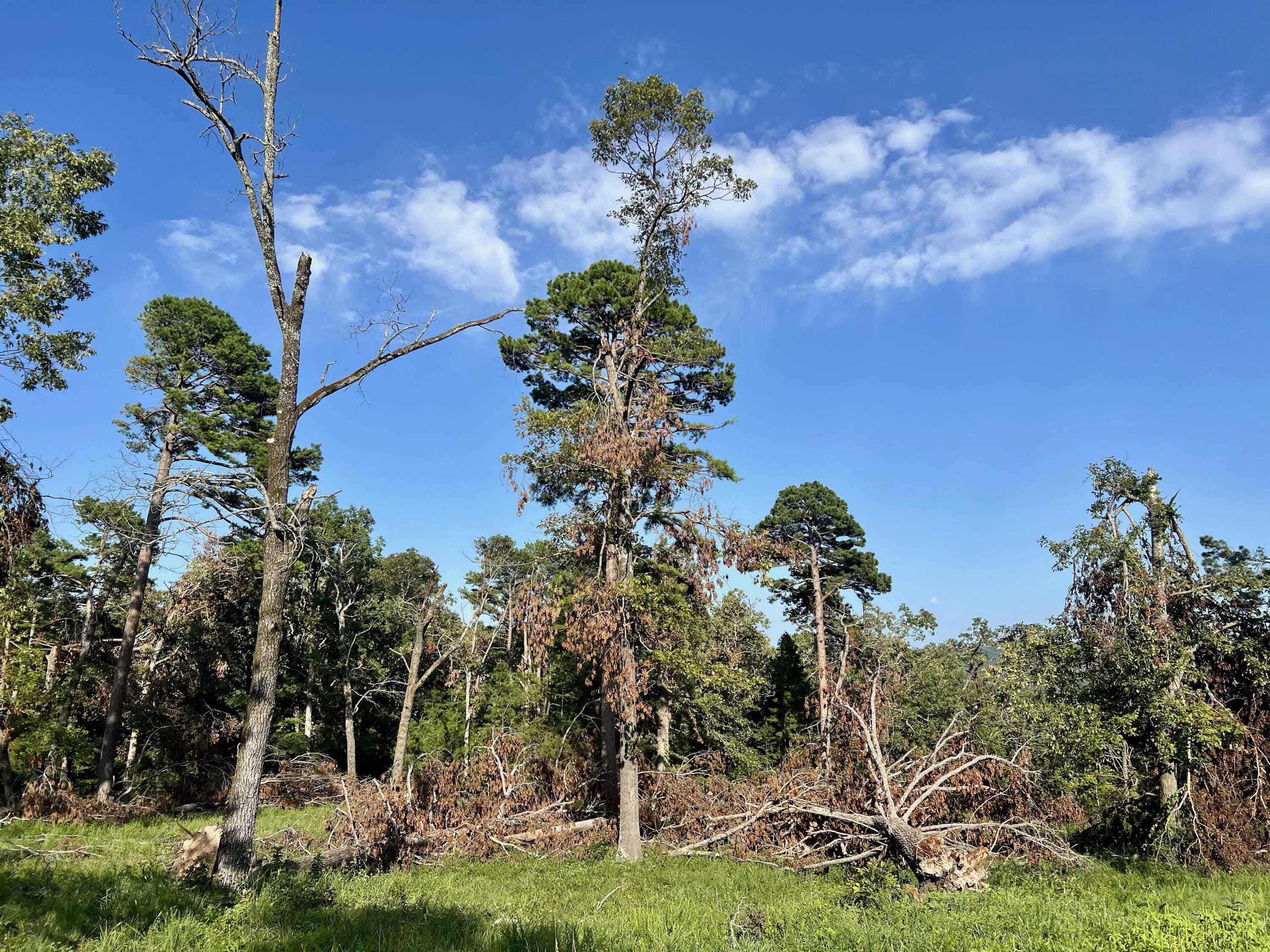UAM NEWS
Economics Impacts of 2024 Tornado Activity to Forest Lands in North Arkansas

In May Arkansas saw a record number of tornados touch down in our state causing an estimated $89 million in total economic impacts and potential environmental risk associated with the forest damage experienced in five northern counties.
The National Weather Service (NWS) reported a record number of 17 tornados across Arkansas on May 26 with one tornado having a path width of nearly two miles in Benton County. The Arkansas Department of Agriculture Forestry Division estimated the tornados destroyed $18.4 million worth of timber over 12,400 acres in Benton, Madison, Marion, Baxter and Fulton counties. Given these numbers, the Arkansas Center for Forest Business analyzed the full economic impact of this timber loss, which totaled to $89 million. This estimate includes the cost of hazard reduction, loss in labor due to timber not being harvested, loss in carbon storage and losses of both local and state tax revenues.
To support landowners in this area, the Arkansas Center for Forest Business prepared and reported the economic losses experienced in the five northern counties. Data was shared with the Arkansas Department of Agriculture Forestry Division which led to the division requesting financial support from farm service agencies to assist landowners in the area.
Dr. Shaun Tanger, associate professor of forest policy and trade at the University of Arkansas at Monticello (UAM) College of Forestry, Agriculture and Natural Resources (CFANR), stated, “The Arkansas Center for Forest Business assists landowners with strategic planning and provides economic values to the Arkansas Department of Agricultural Forestry Division and the Arkansas Forestry Association as needed to support in policymakers’ decision making to coordinate disaster funding.”
While the economic impact on the surrounding communities is devastating, the environmental impact of not properly caring for the fallen timber could be detrimental to the ecosystem. According to Dr. Matthew Pelkki, director of the Arkansas Center for Forest Business and professor for the CFANR at UAM, these lands are very susceptible to infestation of negative pests and fire hazards.
“The potential is that the chemicals released from a dead or recently killed tree are going to attract insects, which in a natural scenario is not necessarily a bad thing. However, in this scenario, there is a potential to draw in populations of insects that are detrimental to our forest,” Dr. Pelkki said. “Insects such as bark beetles and red oak borers could thrive in the fallen timber and then start affecting living trees around the area. Then, there is also a fire hazard. We have a lot of dead, down material that will dry out and create a fire hazard.”
The Arkansas Center for Forest Business encourages landowners to be proactive with land management efforts.
“It is important that Arkansas’ forest landowners work with foresters to manage their forests for greater resiliency to insects, diseases, and climate events and one of the tools for that is timber harvesting,” Dr. Pelkki added.
Inquiries about financial assistance from Farm Service Agencies for landowners from the affected region can be directed to the Arkansas Department of Agriculture, Division of Forestry. The Arkansas Center for Forest Business is also available to provide landowners with valuable information and connections to assist with land management.
For more information about the Arkansas Center for Forest Business, visit here.